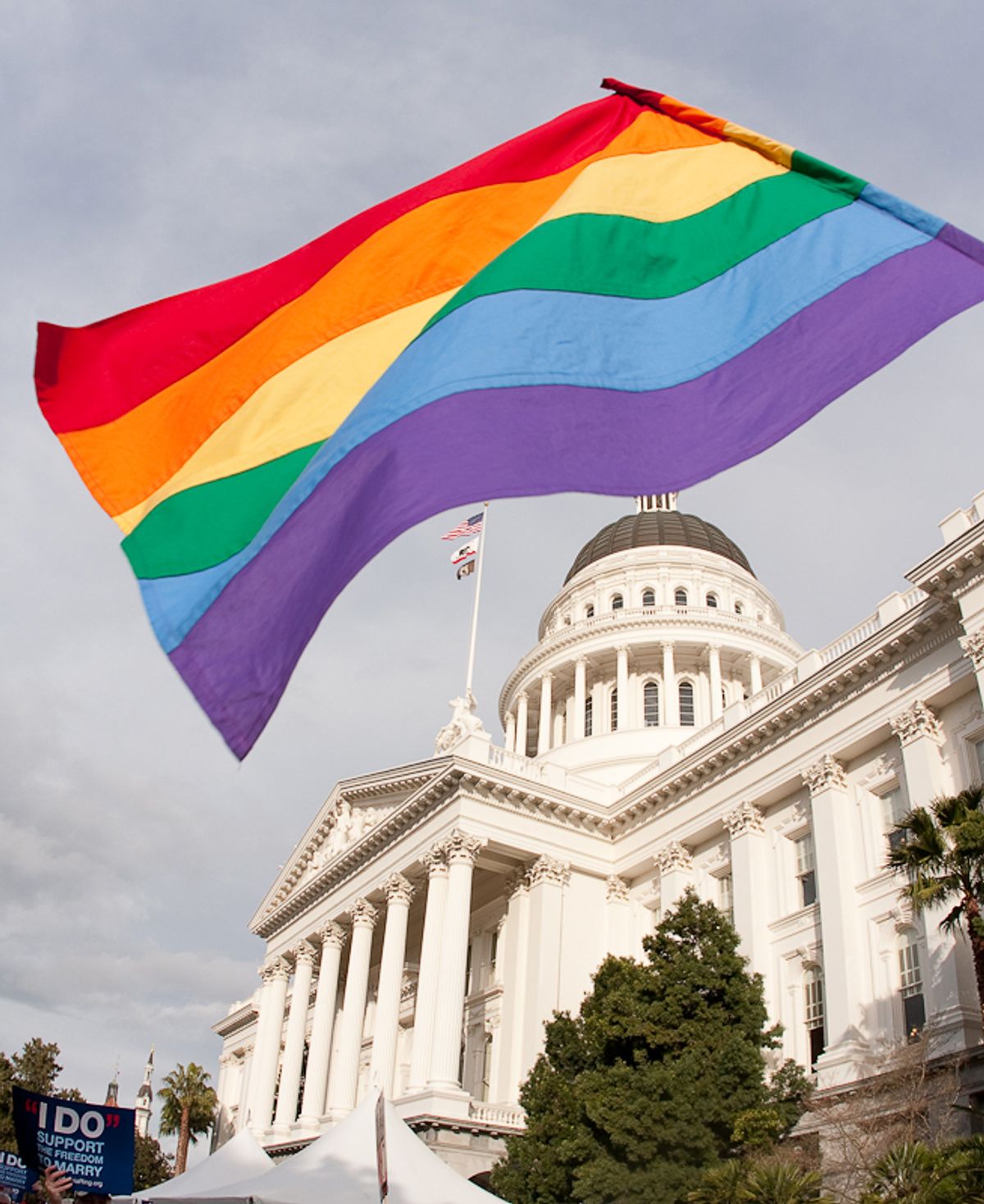Guess which nation will be the first to legalize equal marriage for LGBT people: the predominantly Catholic nation in the Old World with a conservative president, or the one led by a liberal and founded on the principle of the separation of church and state?
Amazingly enough, Monday's news proved it to be the former. Portugal's President Anibal Cavaco Silva announced that he would ratify a law to permit same-sex marriage, making it the sixth European nation where gay couples can wed -- and far ahead of the United States when it comes to civil rights for LGBT people. Belgium, The Netherlands, Spain, Sweden, and Norway round out the European countries that validate the right of citizens to marry who they choose. Other nations where equal marriage is the law of the land? Canada and South Africa. Civil unions are affirmed in New Zealand, the United Kingdom, Finland, Denmark, Iceland, Germany, and Israel. The Portuguese bill, which passed a Socialist Parliament in January, comes after the nation legalized civil unions in 2001 for a country that is 90 percent Catholic.
And what of the United States, land of "life, liberty, and the pursuit of happiness?" Here, same-sex marriage is illegal in 45 states, while a handful of others offer limited domestic partnerships. But the story doesn't end there. Let us count the ways that the U.S. is not only lagging behind the world in civil rights for LGBT people, opting out of the opportunity to be a leader in the fight for personal freedoms.
- Anti-bullying legislation stagnates. While Michigan's House of Representatives recently passed a law that would require schools to enact anti-bullying policies, there is fear that the bill will die in the Republican-controlled Senate -- given that similar measures have been unsuccessfully introduced for years. The reason why a common-sense law to protect the well-being of children has stagnated? The bill defines bullying as "reasonably perceived to be motivated by animus or by an actual or perceived characteristic" -- and Michigan legislators say this is code for special protections for gay people.
- You can be fired for being gay or transgender. In twenty-nine states, it is perfectly legal to fire someone because that person is gay, lesbian or bisexual, and in thirty-eight states to fire someone because that person is transgender. Relatedly, transgender people have double the rate of unemployment in the U.S., according to the National Gay and Lesbian Task Force. It is also, of course, legal to fire someone from their role in the U.S. military if they are gay and honest about it, thanks to Don't Ask, Don't Tell. The Employment Non-Discrimination Act has still not passed in Washington, D.C.. And when you're on shaky ground to begin with at your job, how easy could it be to negotiate benefits that include your partner or the children you're raising?
- Better a child is in foster care than parented by gay people. That's the policy of eight states in the U.S. that explicitly prohibit adoption by gay couples, with legal language in twenty-two others being unclear or inexplicit. There are more than half a million children in foster care in the U.S., according to federal statistics. Only sixteen states have statewide policies that permit second-parent adoption for same-sex parents.
- You are less likely to have a place to live if you are gay or transgender. There are 574,000 and 1.6 million homeless and runaway youth in the U.S. Between 20 and 40 percent of them are LGBT, according to the National Gay and Lesbian Task Force -- far disproportionate to the total numbers of LGBT youth in the U.S.. The Task Force's 2009 research found that nineteen percent of the total sample (6,750 people in all 50 states, Guam, Puerto Rico, and the U.S. Virgin Islands), have been or are homeless, and eleven percent faced eviction. For LGBT seniors, Human Rights Watch reports on assisted living facilities that refuse to accept couples that want to move in together. And this on top of day-to-day (and legal) housing discrimination for LGBT people looking for rentals and mortgages throughout the nation.
- Marriage is only for some people. Yes, marriage again. In the U.S., it's not just the validation of being able to legally partner with the person you choose that is denied in the majority of states. With the lack of marriage rights comes unequal access to "Social Security benefits, immigration, health insurance, estate taxes, family leave, nursing homes, home protection and pensions," according to Human Rights Watch.



Shares